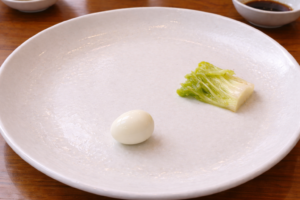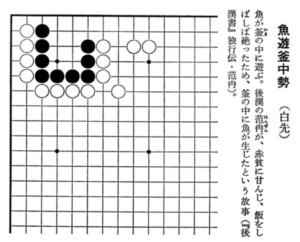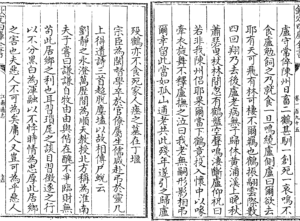Edward S. Morse (1838-1925) は大森貝塚を発掘したことで有名だが、彼の日本滞在記に Japan Day By Day という本がある。先日なんとはなしに原書をパラパラめくっていたら、モースが来日してすぐ、まだ横浜近辺にいたころの記述にこんなものがあった。
Though the country people seem very polite in their repeated bowings, we have seen but little gallantry so far. As an example, we observed a young woman drawing water from a well. These in many towns are at the side of the street. She was interrupted by three men who left their load in the street to get a drink of water, she standing patiently by until they had finished. We supposed, of course, they would draw up a bucket of water for her; but nothing of the kind, — they did not even thank her.
わざわざ “they did not even thank her” と書いているので、もしかすると、男どもは単に割りこんだだけでなく、彼女が汲んでいる途中であった水を横取りしたのかもしれない。
ところでこの”gallantry”という単語を私は知らなかった。文脈的におそらく「女性への配慮」とかそういう意味であろう、と推測して辞書を引いてみるとこうある。
gal・lant・ry
Oxford Advanced Learner’s Dictionary
BrE /ˈɡæləntri/; NAmE /ˈɡæləntri/
1 courage, especially in a battle
2 polite attention given by men to women
なるほど。男性から女性に対する紳士的態度、という意味合いか。1の語義とあわせると、騎士道に相通じる概念のようだ。
今日、今度は Basil Hall Chamberlain の Things Japanese を見ていたらまたこの単語に出会った。
Even more so does the absence of gallantry towards the fair sex. No Japanese Ariosto would have dreamt of beginning his epic of Chivalry with the words
Le donne, i cavallier, L’arme, gli amori,
Le cortesie, L’audaci imprese io canto.
“God and the ladies!” was the motto of the European knight. But neither God nor the ladies inspired any enthusiasm in the Samurai’s breast.
ふと思ったが、”gallantry” は、ヨーロッパの騎士道と日本の武士道を比較検討する keyword になりえるかもしれない。
さて、このへんの指摘は明治期の日本人にとってなかなか耳の痛いところであったらしく、当時日本人によって書かれた西欧向けの本では、女性の地位について紙幅を割いて弁明するのが常であったようだ。たとえば Okakura Kakuzo (岡倉天心)は Awakening of Japan においてこのように書いている。
We have never hitherto, however, learned to offer any special privileges to woman. Love has never occupied an important place in Chinese literature; and in the tales of Japanese chivalry, the samurai, although ever at the service of the weak and oppressed, gave his help quite irrespective of sex. To-day we are convinced that the elevation of woman is the elevation of the race. She is the epitome of the past and the reservoir of the future, so that the responsibilities of the new social life which is dawning on the ancient realms of the Sun-goddess may be safely intrusted to her care. Since the Restoration we have not only confirmed the equality of sex in law, but have adopted that attitude of respect which the West pays to woman.
天心にとって「女性の尊重」という概念は、あくまで西欧的価値観による文化である、という認識らしい。つまり、近代化によって必然的に生じたものではなく、あくまで地域による意識の差、と強調している。彼はなぜこのような腑分けを行ったのだろうか。
また後段で彼はこのように述べている。
In the East woman has always been worshiped as the mother, and all those honors which the Christian knight brought in homage to his lady-love, the samurai laid at his mother’s feet. It is not that the wife is less adored, but that maternity is holier. Again, our woman loves to serve her husband; for service is the noblest expression of affection, and love rejoices more in giving than in receiving. In the harmony of Eastern society the man consecrates himself to the state, the child to the parent, and the wife to the husband.
私は先に「弁明」と書いたが、これはむしろ西欧への対抗としての東洋の称揚であろう。私は天心の著作はこれしか読んでいないのだが、彼がなぜこのような思想を持つに至ったか、すこし時間をとって調べてみたいと思った――今はここまで。







※コメントは最大500文字、5回まで送信できます